Welcome to our free classical music site

Do you write about classical music? Are you a blogger? Want to team up with Classical Connect? Send us a message, let's talk!

Do you write about classical music? Are you a blogger? Want to team up with Classical Connect? Send us a message, let's talk!
This Week in Classical Music: December 27, 2021. Happy New Year. This was a difficult year, in more ways than one. The Covid pandemic overwhelmed all aspects of our lives and hit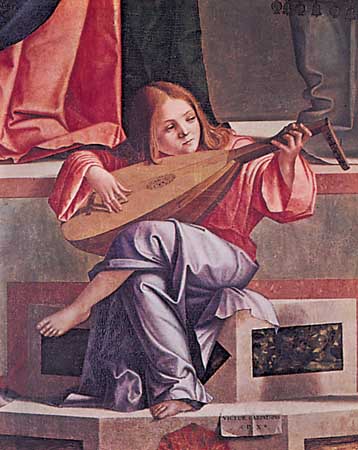 classical music very hard. As concert halls closed, musicians tried to migrate to the Internet only to find that in most cases it didn’t work – the viewership was very low. There are many reasons for that, the most obvious being the difference between the ambience of a live concert and the remoteness of listening to a recorded performance on your phone or computer. But there are other reasons: the Internet had been chock full of good performances even before the pandemic. Some, uploaded from CD, had the advantage of being engineered and scrubbed of all technical imperfections. It’s one thing to hear (and dismiss) an occasional wrong note in a concert hall, where the intimacy of the performance compensates for some errors; it’s another to hear the same mistake while listening to a recording on YouTube. To have one’s performance noticed in this environment was almost impossible. Despite the enormous help from foundations, private individuals, the states, and the Federal government, it still is a mystery how some musicians have managed to survive the past two years.
classical music very hard. As concert halls closed, musicians tried to migrate to the Internet only to find that in most cases it didn’t work – the viewership was very low. There are many reasons for that, the most obvious being the difference between the ambience of a live concert and the remoteness of listening to a recorded performance on your phone or computer. But there are other reasons: the Internet had been chock full of good performances even before the pandemic. Some, uploaded from CD, had the advantage of being engineered and scrubbed of all technical imperfections. It’s one thing to hear (and dismiss) an occasional wrong note in a concert hall, where the intimacy of the performance compensates for some errors; it’s another to hear the same mistake while listening to a recording on YouTube. To have one’s performance noticed in this environment was almost impossible. Despite the enormous help from foundations, private individuals, the states, and the Federal government, it still is a mystery how some musicians have managed to survive the past two years.
Another tsunami that hit classical music in 2020 was what could be called “wokeness”; it continued into 2021 practically unabated. We’ve written several times how we abhor the new race- and gender-based approach to classical music. We can only wish that normalcy is restored in 2022 (we think we can detect some signs that things are moving in the right direction, however tentatively). To state once again: we are for musicians expanding the standard repertoire, which in some quarters stays narrow and stale (this is our cry for diversity); we are for a bigger place for classical music in our culture (which, unfortunately, is diminishing); we are for musical education, which is so lacking today; we are for high quality, which is still there and being achieved by so many musicians and orchestras. But we’re against music being judged in political and woke terms.
With this is mind, and in the spirit of the season, here are three pieces that we don’t hear often. First, the motet Justorum animæ by Orlando di Lasso. It’s performed by the Magnificat Ensemble (here). Then comes Giovanni Pierluigi da Palestrina’s motet Nigra sum sed formosa (Dark am I, yet lovely, daughters of Jerusalem), performed by the Hilliard Ensemble (here). And finally, a motet by Tomás Luis de Victoria, Alma Redemptoris Mater. It’s performed by The Sixteen under the direction of Harry Christophers (here).
PermalinkThis Week in Classical Music: December 20, 2021. Christmas and Joseph Boulogne. The Holidays are coming, and we wish all our listeners Merry Christmas! For years we’ve been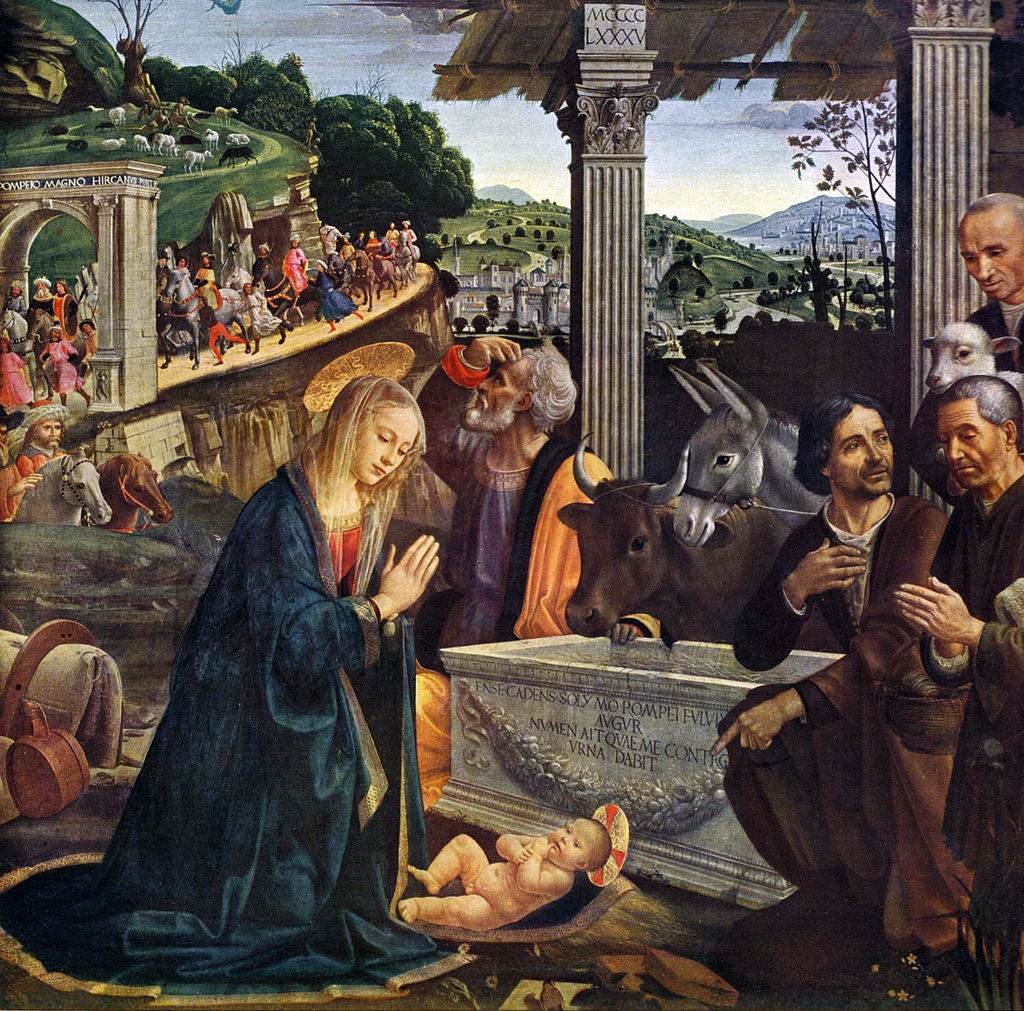 celebrating it with portions of Bach’s Christmas Oratorio; last year we completed the cycle. There’s nothing wrong with listening to it again and again, as the music is absolutely magnificent, and we’ll certainly do so in the future, but in the meantime, we’ll turn to some other Christmas music that often goes unnoticed. Here is, for example, one of Telemann’s Christmas cantatas, Die Hirten bei der Krippe zu Bethlehem (The shepherds at the manger in Bethlehem), TWV 1:797. It’s performed by the Telemann Kammerorchester, Kammerchor Michaelstein and soloists under the direction of Ludger Remy
celebrating it with portions of Bach’s Christmas Oratorio; last year we completed the cycle. There’s nothing wrong with listening to it again and again, as the music is absolutely magnificent, and we’ll certainly do so in the future, but in the meantime, we’ll turn to some other Christmas music that often goes unnoticed. Here is, for example, one of Telemann’s Christmas cantatas, Die Hirten bei der Krippe zu Bethlehem (The shepherds at the manger in Bethlehem), TWV 1:797. It’s performed by the Telemann Kammerorchester, Kammerchor Michaelstein and soloists under the direction of Ludger Remy
Also this week is the birthday of the French composer Joseph Boulogne, known as Chevalier de Saint-Georges (he was born December 25th, 1745). Our guest writer and flutist Aleah Fitzwater has written an entry about him, below.
Joseph Boulogne, also known as Chevalier de Saint-Georges was a man of many talents. He was a virtuosic violinist, composer, and conductor. He was born in December 1745, in a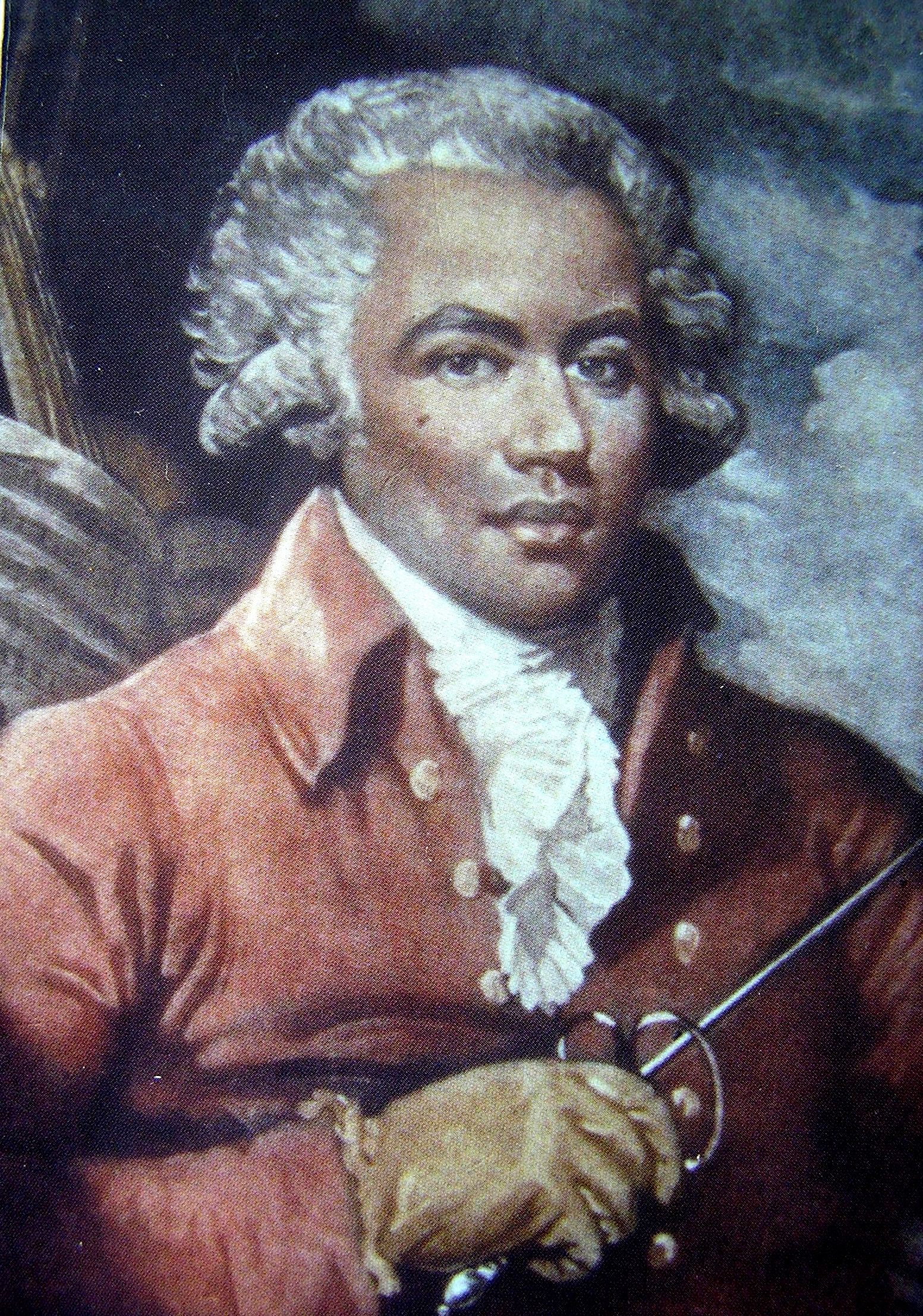 French colony on the island called Guadeloupe. Joseph was the son of a plantation owner, Pierre Boulogne. However, the plantation owner had Joseph out of wedlock. His mother was a slave who belonged to Pierre Boulongne’s wife. Her name was Anne Nanon. Anne Nanon was Sengalese. Throughout his life, Joseph struggled to fit fully into French society due to his mixed heritage.
French colony on the island called Guadeloupe. Joseph was the son of a plantation owner, Pierre Boulogne. However, the plantation owner had Joseph out of wedlock. His mother was a slave who belonged to Pierre Boulongne’s wife. Her name was Anne Nanon. Anne Nanon was Sengalese. Throughout his life, Joseph struggled to fit fully into French society due to his mixed heritage.
Boulogne ended up moving quite a lot in his youth. He and his family eventually settled back down in France, though, where they knew that the prejudice towards people of mixed race would be less severe.
A Swordsman First. Joseph Boulogne began fencing when he was just 13 years old. X`He became known as Chevalier de Saint-Georges due to his talent as a swordsman. This name was given to him by Louis XV. Chevalier literally translates to Knight. He was also given the nickname ‘The God of Arms’ before he reached the age of twenty.
Early Compositions. Chevalier Saint-George began composing around 1770, when he was about 25 years old. Historians don’t know much about the beginning of his musical education. His early compositions were primarily string quartets. He also wrote several sonatas during this time. In 1772, he premiered his Violin Concertos in G (https://www.youtube.com/watch?v=rzITCuc4IbM)
Famous Connections. Saint-George went on to study with the French composers Gossec and Leclair. Gossec had created Concert de Amateurs, the group with which Saint-George initially premiered, and would later go on to conduct. But Chevalier’s connections with famous individuals didn’t end there. In 1779, he began to perform with Queen Antoinette (blackpast.org).
King Louis XVI’s Harsh Rule. Despite Chevalier’s wild success and performances with the queen, his life was far from easy. King Louis XVI was ruling at the time. While it is uncertain whether the King approved of Saint-George’s performances with the Queen, Louis XVI was expressly against abolishing slavery, and forbade interracial marriages. These strict laws would continue to be present throughout much of the composer's life. (Continue reading here).Permalink
This Week in Classical Music: December 13, 2021. Beethoven and more. This time last year we were celebrating the 250th anniversary of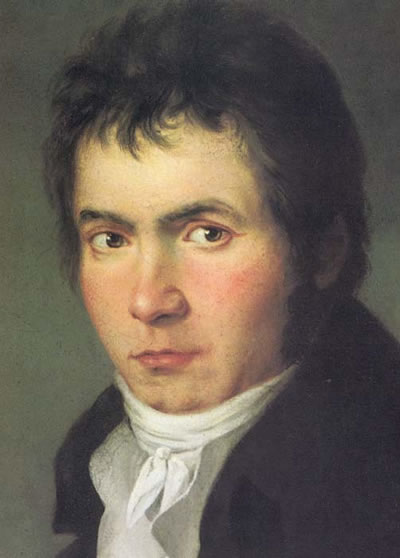 ’s birth. Or at least we were supposed to, because actual celebrations made about as much of a splash as the 500th anniversary of Columbus’s voyage in 1992 or the 400th anniversary of the first Thanksgiving this year, which is to say not too much. The reason is obvious: Beethoven was a dead white male – not a big surprise, as he was known to be as such for about 200 years – but last year we were in the throes of the EDI and being white, male and dead didn’t fit the image of a person to be celebrated. Especially considering that for some, like the musicologist Philip Ewell, Beethoven was just “above average” and not more (Ewell titled his article “Beethoven Was an Above Average Composer—Let’s Leave It at That”). Europe didn’t fall under the EDI spell to the extent we in the US did, but even there, celebrations were muted by Covid. So today, on the eve of the 251st anniversary of his birth, we want to restate the obvious: Beethoven was one of the greatest composes of classical music and one of the greatest geniuses in the history of modern Western culture.
’s birth. Or at least we were supposed to, because actual celebrations made about as much of a splash as the 500th anniversary of Columbus’s voyage in 1992 or the 400th anniversary of the first Thanksgiving this year, which is to say not too much. The reason is obvious: Beethoven was a dead white male – not a big surprise, as he was known to be as such for about 200 years – but last year we were in the throes of the EDI and being white, male and dead didn’t fit the image of a person to be celebrated. Especially considering that for some, like the musicologist Philip Ewell, Beethoven was just “above average” and not more (Ewell titled his article “Beethoven Was an Above Average Composer—Let’s Leave It at That”). Europe didn’t fall under the EDI spell to the extent we in the US did, but even there, celebrations were muted by Covid. So today, on the eve of the 251st anniversary of his birth, we want to restate the obvious: Beethoven was one of the greatest composes of classical music and one of the greatest geniuses in the history of modern Western culture.
We have most but not all of Beethoven’s piano sonatas in our library. One that we were missing so far was no. 16, op 31 no. 1. This sonata was written between 1801 and 1802 and is one of the more optimistic (and in parts funny) of Beethoven’s pianos compositions. This is quite incredible considering that during that time Beethoven’s hearing problems had worsened , and he was often depressed. Beethoven had first noticed problems in 1798, and from that time on his hearing had started todecline. Worse still was that the deafness was accompanied by severe tinnitus. It had gotten so bad that in October of 1802 Beethoven wrote a letter to his brothers, which we know as the Heiligenstadt Testament, in which he confessed to contemplating suicide. And at the same time, he wrote this joyful piece. Here it is, brilliantly performed by Stephen Kovacevich.
There are several more anniversaries this week: Zoltan Kodály, a wonderful Hungarian composer and a lifelong friend of another very talented Hungarian, Béla Bartók, was born on December 16th of 1882. Rosalyn Tureck, an American pianist and harpsichordist, an excellent interpreter of the music of Bach, was born in Chicago on December 14th of 1913. And speaking of Chicago, Fritz Reiner, who directed the Chicago Symphony from 1953 to 1962, was born on December 19th of 1888, in Budapest, Hungary.Permalink
This Week in Classical Music: December 6, 2021. Real diversity. This is one of the weeks that demonstrate especially well the amazing diversity of this wonderful art we call Classical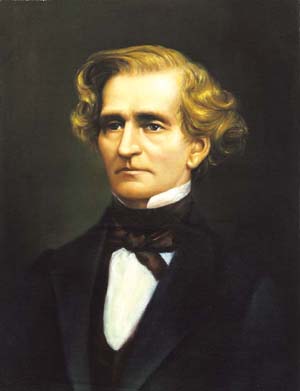 music. We’ll start with Hector Berlioz, the French Romantic composer who wrote in a unique style and whose greatness was acknowledged only years after his death. Berlioz was born on December 11th of 1803. Another great French composer was born one hundred years later -- Olivier Messiaen, on December 10th of 1908. Both wrote massive pieces – Berlioz’s opera Les Troyens runs for more than four hours, Messiaen’s Saint François d’Assise close to five, so it’s difficult to present small samples to demonstrate how much music had changed in one hundred years, but you could browse our library and listen to, for example, to a piece from Messiaen’s piano suite Vingt Regard sur l'Enfant Jésus and then Berlioz’s Symphonie fantastique and judge for yourself.
music. We’ll start with Hector Berlioz, the French Romantic composer who wrote in a unique style and whose greatness was acknowledged only years after his death. Berlioz was born on December 11th of 1803. Another great French composer was born one hundred years later -- Olivier Messiaen, on December 10th of 1908. Both wrote massive pieces – Berlioz’s opera Les Troyens runs for more than four hours, Messiaen’s Saint François d’Assise close to five, so it’s difficult to present small samples to demonstrate how much music had changed in one hundred years, but you could browse our library and listen to, for example, to a piece from Messiaen’s piano suite Vingt Regard sur l'Enfant Jésus and then Berlioz’s Symphonie fantastique and judge for yourself.
Three more very significant 20th century composers were also born this week: the Polish Henryk Górecki (on December 6th of 1933), the Jewish-Polish-Soviet composer Mieczysław Weinberg, on December 8, 1919, and the American, Elliott Carter, on December 11th of 1908. Even though they were contemporaries, it’s difficult to imagine more different composers. Górecki, a minimalist, is one of the most popular modern classical composers of the last half century, he sold thousands of recordings. Carter, on the other hand, all his life wrote very angular, modernist music, and while he was highly esteem among his colleagues, he was never popular with the public. Weinberg is very different from both, and in a way, these composers create a triangle of sorts: Weinberg, Shostakovich’s disciple and not a modernist, was as far away from Górecki’s music as he was from Carter’s.
Even though Bohuslav Martinu was born in the 19th century (on December 8th of 1890), he’s definitely a 20th century composer, even though he often used a neoclassical idiom. Together with Janáček, he is the most interesting Czech composer of the period. On the other hand, Pietro Mascagni, who died in 1945, was firmly a 19th century composer (Mascagni was born on December 7th of 1863). Joaquin Turina (b. 12/9/1882) was also a conservative composer, but hisguitar pieces remain widely popular.
And to add to our already full roster: César Franck, of the Violin sonata fame, was born on December 10th of 1822. A Belgian, he spent most of his productive years in France. Bernardo Pasquini, born December 7th of 1637, was one of the most important Italian keyboard composers between Frescobaldi and Domenico Scarlatti. Last but not least, the great Finnish symphonist Jean Sibelius who was also born this week, on December 9th of 1865. Three centuries, eleven names; we suppose it would be hard to come up with a more diverse group.Permalink
This Week in Classical Music: November 29, 2021. Callas. Maria Callas – La Divina, as she was called by her adoring fans – was born on December 2nd of 1923 in New York. Without a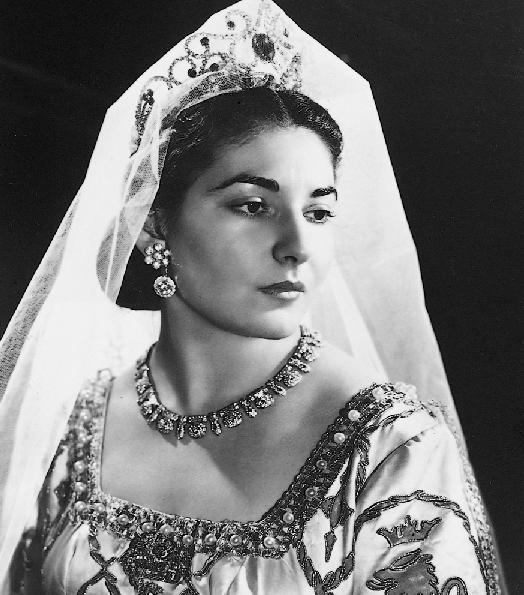 doubt the most famous soprano of the 20th century, she was triumphant in the bel canto repertoire. Considering her tremendous legacy, it come as a surprise that at the best level of singing her career was short, not more than 10 years. Even though Callas was an American, her talent was first recognized in Italy when, in 1947, the conductor Tulio Serafin engaged her in the production ofPonchielli’s La Gioconda in Verona. Soon after she was singing in many Italian opera theaters, performing an unusually broad range of soprano roles, from Isolde, Kundry and Brünnhilde in Wagner’s operas to the bel canto role of Elvira in Bellini’s I puritani. Eventually she dropped the heavier roles, concentrating on the operas of Bellini, Donizetti and Verdi. Early in her career Callas was a heavy woman, but in 1953-54 she lost about 80 pounds. That completely changed her stage presence, transforming her into an elegant and beautiful woman, but many felt that the weight loss affected her singing. A rather heavy vibrato in the high register, occasional unsteadiness and harshness became noticeable. There were periods in the second half of the 1950s when the vibrato would almost disappear but then it would come back again. In the 1960s her voice deteriorated further, even though the emotional impact of her interpretations, her musicality, the intelligence of her performances all were intact.
doubt the most famous soprano of the 20th century, she was triumphant in the bel canto repertoire. Considering her tremendous legacy, it come as a surprise that at the best level of singing her career was short, not more than 10 years. Even though Callas was an American, her talent was first recognized in Italy when, in 1947, the conductor Tulio Serafin engaged her in the production ofPonchielli’s La Gioconda in Verona. Soon after she was singing in many Italian opera theaters, performing an unusually broad range of soprano roles, from Isolde, Kundry and Brünnhilde in Wagner’s operas to the bel canto role of Elvira in Bellini’s I puritani. Eventually she dropped the heavier roles, concentrating on the operas of Bellini, Donizetti and Verdi. Early in her career Callas was a heavy woman, but in 1953-54 she lost about 80 pounds. That completely changed her stage presence, transforming her into an elegant and beautiful woman, but many felt that the weight loss affected her singing. A rather heavy vibrato in the high register, occasional unsteadiness and harshness became noticeable. There were periods in the second half of the 1950s when the vibrato would almost disappear but then it would come back again. In the 1960s her voice deteriorated further, even though the emotional impact of her interpretations, her musicality, the intelligence of her performances all were intact.
In 1952, when our featured recording was made, Callas was at the top of her form. She had not yet made her American debut (that would come in 1954, in Chicago, where she sung Norma on November 1st of 1954 to an adoring audience of 3,500) but already famous in Italy and beyond. The recording was made during the renowned “Grandi Concerti Martini & Rossi,” the series of concerts broadcast on Italian radio RAI. Concerti Grandi were launched in 1936 under the sponsorship of the vermouth makers Martini & Rossi and over the years featured all major Italian singers of radio era, from Beniamino Gigli, Toti Dal Monte to the great singers of the 1950-60. We’ll hear the Mad scene from Donizetti’s Lucia di Lammermoor, Orchestra Sinfonica di Torino della Rai is conducted by Oliviero de Fabritiis.Permalink
This Week in Classical Music: November 22, 2021. Catching up. Last week, as we were railing against the woke approach to classical music, we missed several interesting dates. So this time we’ll cover two weeks rather than one. Several important composers had anniversaries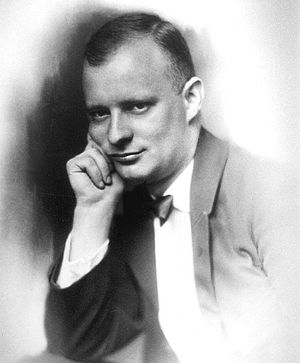 during this period. Paul Hindemith was born on November 16th of 1895 in Hanau, near Frankfurt. Last year we celebrated his 125th anniversary. Here’s his Trauermusik (Funderal music), written on an exceedingly short notice. The story of this piece is very unusual. On January 19th of 1936, Hindemith, who was a brilliant violist, traveled to London to solo in his own viola concerto; the concert was to take place two days later at Queen’s Hall. On the 20th King George V died and the concert was cancelled. Still, Adrian Boult, who was to conduct the concert, wanted to play something appropriate and have Hindemith involved. They discussed the program and eventually decided that Hindemith should write music for the occasion. Hindemith agreed, and in six hours wrote a piece for the viola and string orchestra. Later that very evening, on January 21st, it was played, with Hindemith soloing, and broadcast live from the BBC studio! It is also noteworthy that Hindemith wrote a piece to commemorate the monarch of the United Kingdom, an enemy of Nazi Germany, and did so while he was under a lot of pressure from the regime.
during this period. Paul Hindemith was born on November 16th of 1895 in Hanau, near Frankfurt. Last year we celebrated his 125th anniversary. Here’s his Trauermusik (Funderal music), written on an exceedingly short notice. The story of this piece is very unusual. On January 19th of 1936, Hindemith, who was a brilliant violist, traveled to London to solo in his own viola concerto; the concert was to take place two days later at Queen’s Hall. On the 20th King George V died and the concert was cancelled. Still, Adrian Boult, who was to conduct the concert, wanted to play something appropriate and have Hindemith involved. They discussed the program and eventually decided that Hindemith should write music for the occasion. Hindemith agreed, and in six hours wrote a piece for the viola and string orchestra. Later that very evening, on January 21st, it was played, with Hindemith soloing, and broadcast live from the BBC studio! It is also noteworthy that Hindemith wrote a piece to commemorate the monarch of the United Kingdom, an enemy of Nazi Germany, and did so while he was under a lot of pressure from the regime.
Other composers born during this period: Wilhelm Friedemann Bach, the unhappy but very talented eldest son of Johann Sebastian, on November 22nd of 1710; Benjamin Britten, probably the greatest British composer of the 20th century, on November 22, 1913; Manuel de Falla, one of the most important of all Spanish composers of the 20th century, on November 23rd of 1876. Also, three Russian composers of different epochs, Alfred Schnittke in the late 20th century (b. 11/24/1934),Sergei Taneyevwho lived a century earlier (b. 11/25/1856); and Anton Rubinstein (b. 11/28/1829), the founder of the St.-Petersburg Conservatory, the first in Russia. Last but not least, the composer who establish the Baroque tradition in French music, the Italian Jean-Baptiste Lully.
As for instrumentalists and singers, here are several that we’d like to mention. Daniel Barenboim turned 79 on November 15th (read more about him and the cellist Natalia Gutman here). Jorge Bolet was born on the same day in 1914 in Havana, Cuba. A great virtuoso, he lived in the US most of his life. Not as well known or recorded as some of his contemporaries, he was a wonderful interpreter of the works of Liszt and other Romantics. Another American piano virtuoso, Earl Wild, was also born this week, on November 26th of 1915. That’s not all: Ignacy Jan Paderewski, one of the most famous pianists of all time, also a composer and a diplomat, was born on November 18th of 1860; Wilhelm Kempff, one of the best German pianists famous for his interpretation of the music of Beethoven and Schubert, was born on November 25th of 1895; and Yakov Zak, a noted Soviet pianist, was born in Odessa on November 20th of 1913.
We can’t mention everybody, but we can’t miss Alfredo Kraus, a great musician and one of the best bel canto tenors of the mid-20th century; he was born on the Canary Islands on November 24th of 1927.Permalink